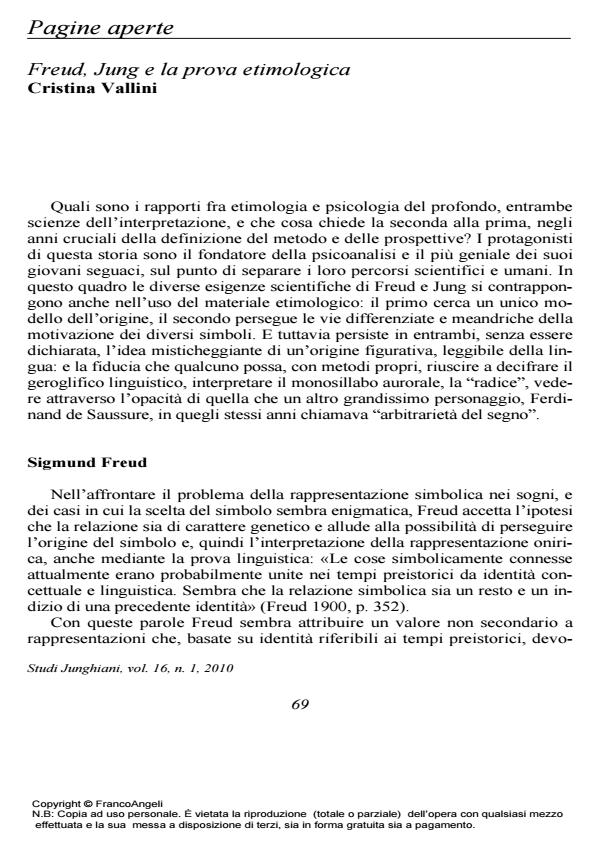Freud, Jung e la prova etimologica
Journal title STUDI JUNGHIANI
Author/s Cristina Vallini
Publishing Year 2010 Issue 2010/31
Language Italian Pages 23 P. 69-91 File size 590 KB
DOI 10.3280/JUN2010-031005
DOI is like a bar code for intellectual property: to have more infomation
click here
Below, you can see the article first page
If you want to buy this article in PDF format, you can do it, following the instructions to buy download credits

FrancoAngeli is member of Publishers International Linking Association, Inc (PILA), a not-for-profit association which run the CrossRef service enabling links to and from online scholarly content.
The author examines the different position of Freud and Jung in connection to the etymological data available at the beginning of Twentieth Century. In spite of their different sensibility, they both believe in the possibility of deciphering the linguistic "hieroglyphic", interpreting the root as an "auroral monosyllable", storage of the oldest meanings. Freud uses the data to confirm his own idea on the "opposite" meaning of primitive words, and the sexual value of first roots; Jung frames the Indo-European etymology in his theory of libido’s creativity, finding matches between etymological values in dictionaries and the most salient moments of his already consciously anti-Freudian theory.
Keywords: Etymology, Freud, Jung, Contrast, Theory, Libido der Wissenschaft nicht als einen Wettkampf ums Rechthaben, sondern als eine Arbeit an der Mehrung und Vertiefung der Erkenntnis. An Menschen, die ähnlich über Wissenschaft denken wie ich, wendet sich diese Arbeit».
Cristina Vallini, Freud, Jung e la prova etimologica in "STUDI JUNGHIANI" 31/2010, pp 69-91, DOI: 10.3280/JUN2010-031005